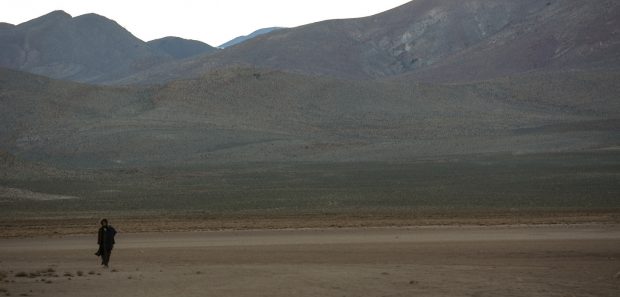Insofar as a Spain-Morocco-France-Qatar co-production that mostly earns comparisons to Jauja can be said to “have a moment,” Oliver Laxe‘s Mimosas is, indeed, having a moment. After winning the Critics’ Week prize at this year’s Cannes Film Festival, it’s been slotted for TIFF’s Wavelengths section and been acquired for a U.S. release by Grasshopper Film. A new trailer, one filled with rather remarkable vistas and intimations at the central conflict, has been released by the festival. Per our review, the film is worth this level of attention, for we said, “It’s a spiritual, ambiguously plotted journey through the Atlas Mountains, and those willing to give in to its mystical embrace and gorgeous visuals should find it a sensual, engrossing watch.”
They’ve also given us an alternately austere and crowded preview of Austerlitz, the new documentary from Sergei Loznitsa, who’s most recently of 2014’s well-regarded Maidan, Eduardo Williams‘ The Human Surge — a Locarno entry which we gave a ringing endorsement by calling “pretty much a film that, by nature, is unlovable,” as well as “often blatantly ugly or boring” — and an absolutely gorgeous-looking Albert Serra exhibition, Singularity, which comes to the festival alongside his Jean-Pierre Léaud-led The Death of Louis XIV.
See the previews below:
Winner of the Grand Prize at Cannes’ Semaine de la Critique, Oliver Laxe’s mesmerizing, minimalist “Eastern western” follows a caravan transporting the body of a sheik to his remote resting place in the perilous wilderness of the Moroccan desert.
The new film from Sergei Loznitsa (Maidan, The Event) is a stark yet rich and complex portrait of tourists visiting the grounds of former Nazi extermination camps, and a sometimes sardonic study of the relationship (or the clash) between contemporary culture and the sanctity of the site.
An ingeniously shape-shifting debut from director Eduardo Williams, which follows the lives of mostly young men in disparate parts of the world who are bored by (or released from) their jobs and seeking fulfillment elsewhere.
Commissioned for “Catalonia in Venice” at last year’s Venice Biennale by curator Chus Martínez, Albert Serra’s monumental five-screen film installation sensually explores, in no narrative order, the stirrings of a society based on labour and sexual exploitation that is forced to develop new forms of technology in order to subsist.


